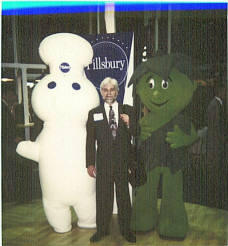There's a good read today, over on HuffPo, from Greg Mitchell, of Editor & Publisher, and author of "Why Obama Won".
Mitchell delves into our use of the nuclear weapon in World War II, and, specifically, Hollywood's treatment of it - with plenty of interference, censorship and white-washing, from the our government.
Hollywood and Hiroshima: When the White House Censored the First Nuclear FilmCreative artists of every variety have made incisive, satiric or powerful statements about nuclear threat. They have offered cautionary works that depict the horror of the bomb or its meaning in our society. What these artistic statements share, however, with rare exceptions, is an avoidance of the specific subject of Hiroshima.
Go read the entire piece, it's well-worth it.
[snip]
Ambivalence or guilt is certain to be evoked by any cinematic treatment of Hiroshima. Perhaps that is why the films all grapple with the notion of American decency. The three Hollywood films have much in common: Each was highly touted and directed by a talented film maker but was an artistic failure. Each was subject to political pressure or scrutiny. The making of the films is as revealing as the films themselves.
[snip]
The MGM screenwriter James K. McGuinness deleted the offending scene and wrote a new one in which Truman explained that in his many discussions on the matter the "consensus of opinion is that the bomb will shorten the war by approximately a year." In the revised scene, Truman revealed that the United States would drop leaflets warning the populace of "what is coming" as a means to "save lives." He said there was a "consensus" that dropping the bomb by a year (there was no such thing) andd he predicted that a "year less of war will mean life for . . . from 300,000 to half a million of America's finest youth."
And he advised that the targets had been picked for their prime military value, rather than the truth: They were picked because they had not been bombed previously and so would demonstrate the pure power of this new weapon. In any case, the aiming points for release of the bombs would be the center of the cities, not over any military bases.
Still, the White House demanded further changes; among them, deleting a reference to morally concerned scientists who favored demonstrating the bomb for Japanese leaders in a remote area before dropping it on a city.
Bonus Riff
Well, This Angel Earned Her Wings
Good Post Alert: Shaun Mullen and The Legacy of Paul Tibbets,The Enola Gay & Separating the Warrior From the War
Monday, August 10, 2009
Good Post Alert: Hollywood and Hiroshima: When the White House Censored the First Nuclear Film
Subscribe to:
Post Comments (Atom)









































No comments:
Post a Comment